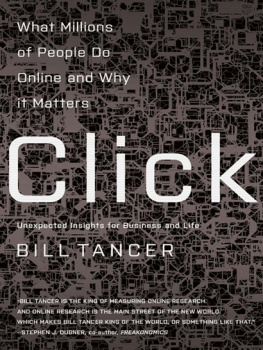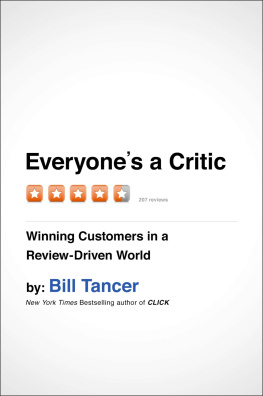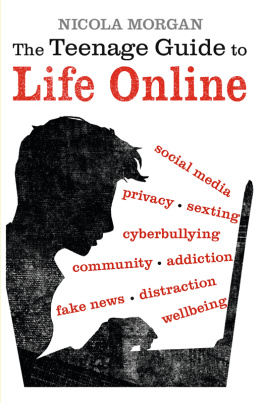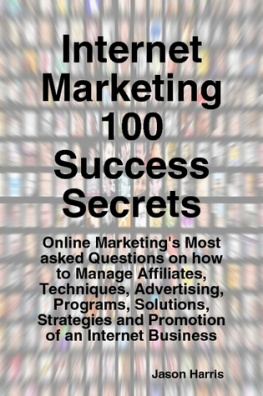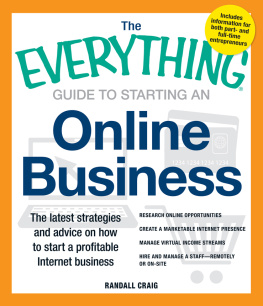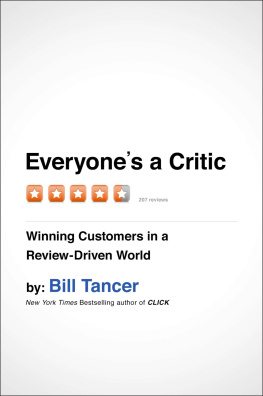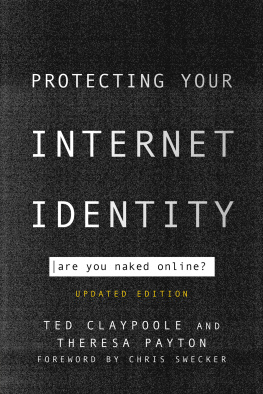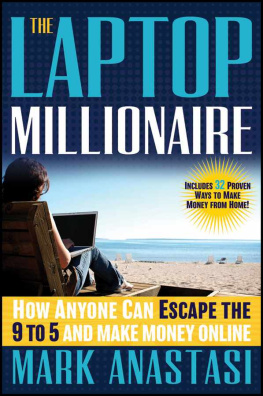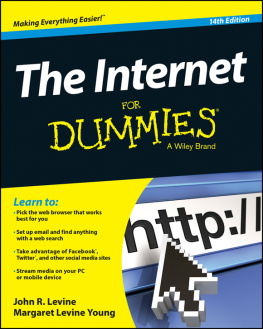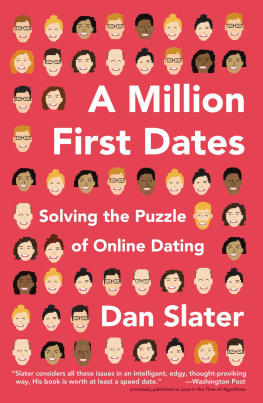

For Lori
Contents
Our fascination with skin, quick fixes, and easy money. Actions speak louder than words, as aggregate interaction with the underbelly of the Internet reveals patterns that arent easy to ascertain from traditional sources.
Do platform stand, voting record, and integrity determine whom we vote for? Search-term data reveals a lot about a candidates brand and the half-life of negative information. See how these insights may innovate the way we measure brand in the business world.
Why do searches for prom dresses peak the first week of January? Internet searches reveal that our gut instincts regarding seasonality are often wrong, resulting in market inefficiencies. We have much to learn from consumers; we just have to observe collective search patterns.
Our commitment to New Year change is surprisingly short-lived, with diet searches lasting less than a week. Outrageous claims as to how we can improve ourselves with no effort lead ultimately to the downward spiral of false hope.
The Internet and specifically celebrity blogs have brought unprecedented public access to the lives of celebrities, fueling our obsession with the famous.
We search on information about our fearsover a thousand unique onesfrom fear of public speaking to fear of elbows and ceiling fans. Search engines have become a new nonjudgmental place for us to ask questions we are increasingly less likely to ask each other.
Is the 80/20 rule pass? With all the hype around Web 2.0, surprisingly few Internet users actively create consumer-generated media, giving rise to the new 1-9-90 rule.
Laptops have become increasingly popular in the living room. Our Internet behavior reveals how we react online to what we see on the tube. As the television-Internet gap closes, we learn what motivates us to interact.
Does volume of search terms translate to popularity? Is it possible to predict reality television show votes from how Internet users search? Near real-time Internet data provides a time advantage over traditional leading economic indicators.
New technology spreads through society in predictable segments starting with Innovators and Early Adopters. Internet behavior viewed in the correct light can help illuminate who the Early Adopters are and what theyre doing today.
Visitors to official band websites traditionally come from either social networks or search engines; graphing these two sources of traffic allows us to visualize Malcolm Gladwells tipping point.
I f you looked around our house, youd quickly discover my obsession with books. Much to my wifes consternation (although she has her own collection), there are books everywhereon the bookshelves where they belong, on the nightstand, in the kitchen, stacked in the corners on every available surface. I love books, but the process of writing Click has made me realize that in my voracious consumption of printed text, Ive really taken books for granted. I had no idea just how many talented individuals are required to take something from concept to finished product. It takes a village to write a book.
Click is based on my work at Hitwise. Its hard for me to think of Hitwise as a company; I consider my colleagues to be part of my extended family, spread over four continents. I was very fortunate to have Tessa Court as my internal champion at Hitwise, but equally fortunate to work with Andrew Walsh and Chris Maher in making this book a reality. I owe deep gratitude to Hitwise analysts, both past and present: Heather Hopkins, who inspired the tipping point chapter; LeeAnn Prescott, who first discovered the prom dress phenomenon; as well as Robin Goad, Heather Dougherty, Sandra Hanchard, and Eva Stringleman, who served as never-ending sources of inspiration; and a special thanks to our head of media relations, Matt Tatham, for helping to get the word out.
This project would never have left the concept stage had it not been for my good fortune in landing one of the most talented literary agents on the planet, Melissa Flashman with Trident Media Group. Melissas excitement about Click was both electric and contagious. As a first-time author, I hit the jackpot in landing Mel as my agent.
I knew we had found the right home for Click at Hyperion. Many thanks to Bob Miller and Ellen Archer for enthusiastically embracing the books concept and championing what I had to say. Thanks to Gretchen Young for her thoughtful and considerate work in guiding me in the right direction, to Beth Gebhard and Alex Ramstrum for lining up amazing publicity, and to Jane Comins and Sarah Rucker and her team. Rick Willett, who provided copyedits for Click , deserves special recognition for the tedium of correcting my grammar and spelling and turning the manuscript into something readable. Thanks also to Elizabeth Sabo, who served as my lifeline to the Hyperion team.
Of course there are the friends who stood by me throughout the book-writing process and those whom I met along the way. Thanks to my office neighbor and lunch buddy Luke McGuiness, who was always a willing sounding board. I credit Rafael Zorrilla with coming up with the chapter title for the books first chapter. PPC means something in online marketing-speak, but Rafael has his own definition, which I borrowed with his permission. Thanks also to Daisy Whitney for her inspiration and comic relief in the book-writing process, and thanks to the Roosters (Bill, Jim, John, Bruce, Norm, Tim, and Gregg), my Saturday bike group, for letting me ride in the back of the group so that I could think about what I was going to write next.
I cant forget the wonderful support of my family. To my parents, Marty and Sheila Tancer, who always supported and encouraged me in all of my endeavors, and to my mother-in-law, Paulette Minden, whose optimism for Click was a constant source of inspiration.
Finally, as I finished Click , it occurred to me that there really should be a support group for spouses/significant others of writers. My amazing wife, Lori, to whom Ive dedicated this book, didnt flinch when I sat her down and announced that I was going to write a book (to appreciate this youd have to consider all the previous half-baked ideas I had announced in the past). Throughout the writing process, Lori has been there for me, has put up with the moodiness that can go along with writing, not to mention the endless conversations and questions about prom dresses, and when needed has served as drill sergeant when I was just too tired to continue. Thanks for always being there, and for giving me the inspiration and support that helped make Click a reality.
O n my way in to work in San Francisco from our house in San Mateo, something about the radio interview I was listening to just didnt sound right. The reporter was talking to a British psychologist about the third week in January, a week that he claimed was the most depressing week of the year. The interviewee detailed how he had reached that conclusion from a mathematical formula hed developed that factored in failed New Years resolutions, credit card debt from the holidays, and weather patterns. All factors taken together pointed to the third week in January as the most depressing of the year. It sounded like a convincing story; I just had a hard time believing it.
While Im all in favor of mathematical formulas, was it possible to build one that would detect a societys swing toward depression? You probably couldnt even detect such a thing by surveying a large sample of the populationcan we count on people to answer questions about depression honestly? No, I was having trouble buying this story, because I had just charted depression a few weeks earlier, and I knew that the most depressing week of the year occurred right around Thanksgiving. How did I know that?

